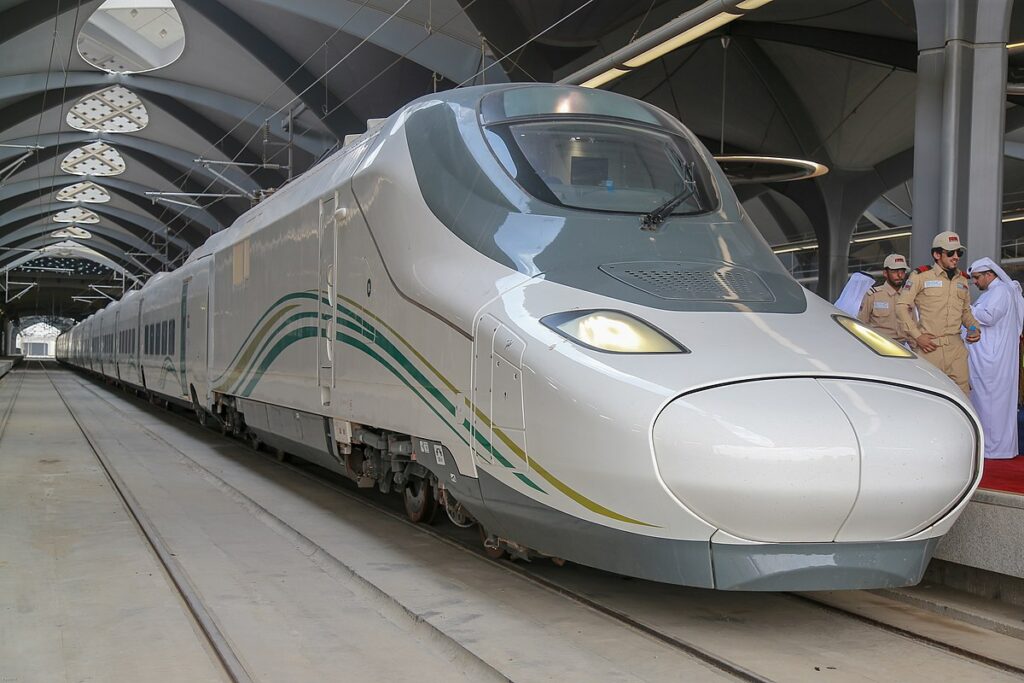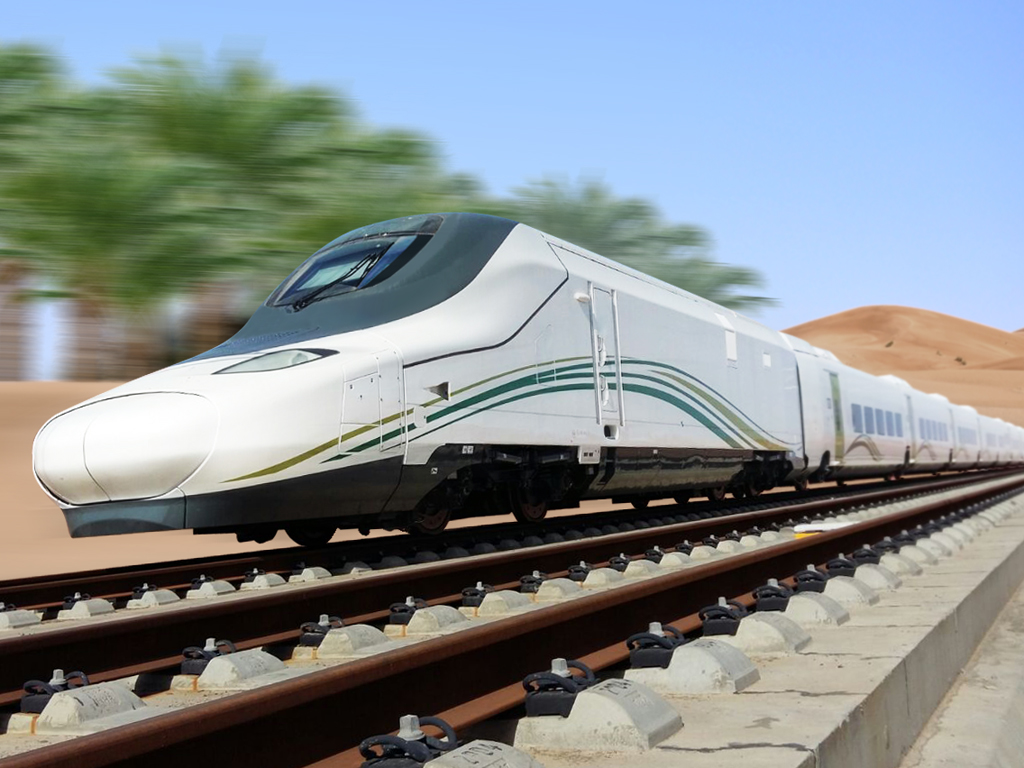Jeddah, one of Saudi Arabia’s most vibrant cities, is embarking on a significant step forward in its transportation infrastructure with the launch of its new train service. This ambitious project is part of the kingdom’s larger plan to modernize its urban spaces and make public transportation more efficient, accessible, and environmentally friendly. The new train service promises to reshape the way Jeddah residents travel within the city, offering them a faster, more convenient, and comfortable alternative to traditional modes of transportation like buses and cars.
In this article, we will delve into the details of this new train service, its benefits for Jeddah’s citizens, the expected impact on the city’s infrastructure, and what it means for the future of transportation in Saudi Arabia.
The Need for a Modern Train System in Jeddah

Jeddah, known as the economic capital of Saudi Arabia, has long been a city where heavy traffic congestion has been a major issue. The rapid growth in population, along with the increasing number of cars on the roads, has led to frequent traffic jams and long travel times. Residents often face delays during rush hours, and public transport options were previously limited, leaving people with few alternatives to private cars.
The new train service aims to address these issues head-on by providing an efficient and reliable mode of transportation. The city’s government has recognized the importance of developing a modern public transport system, not only to reduce traffic congestion but also to enhance the overall quality of life for its residents. With the train service, the government is investing in a sustainable solution that can accommodate the growing demand for transportation while also reducing the city’s carbon footprint.
Project Overview: Connecting Key Areas of the City
The new train service in Jeddah is designed to connect some of the most important and busy areas in the city. The initial phase of the project includes several key stations along a well-planned route. These stations are strategically located near popular residential areas, shopping districts, and commercial hubs, making it easier for people to access the train system.
The train network will be designed with modern, high-tech features that promise a smooth and efficient experience for passengers. With a frequency of trains every few minutes during peak hours, commuters will no longer have to worry about waiting for long periods. The stations will also be equipped with state-of-the-art facilities, such as air-conditioned waiting areas, ticket machines, and signage in both Arabic and English for the convenience of both locals and international visitors.
The first phase of the train service is expected to cover a distance of approximately 40 kilometers, with plans for future expansions to reach other key areas in Jeddah, such as the industrial zones, the Jeddah Islamic Port, and more residential neighborhoods. By connecting these areas, the train service will provide a seamless way for people to travel around the city, whether they are going to work, school, or simply enjoying a day out.
The Benefits of the New Train Service
The introduction of a new train service in Jeddah brings with it numerous benefits that will have a positive impact on both the environment and the everyday lives of residents. Let’s take a closer look at some of these key advantages.
- Reduced Traffic Congestion
One of the most immediate benefits of the new train system is the reduction in traffic congestion. By offering an alternative to private vehicles, the train service will encourage more people to leave their cars at home and use public transport instead. This shift could help ease traffic jams on Jeddah’s busy streets, particularly during rush hours, when roads are often gridlocked.
Fewer cars on the roads would also result in smoother traffic flow, allowing people who still need to drive to get to their destinations more quickly. This reduction in traffic congestion will ultimately lead to a more efficient transportation system and less time wasted in traffic.
- Environmental Sustainability
With concerns over climate change and the environmental impact of traditional transportation, the new train service also provides a greener alternative to driving. Trains are typically more energy-efficient than cars and buses, producing fewer greenhouse gas emissions per passenger. This will help reduce the overall carbon footprint of the city and contribute to Saudi Arabia’s goal of achieving greater sustainability and reducing dependence on fossil fuels.
The train service is expected to use renewable energy sources in its operations, aligning with the kingdom’s Vision 2030 plan, which emphasizes the importance of environmental conservation and sustainability. By investing in modern, eco-friendly transportation, Jeddah is taking a proactive step toward reducing air pollution and promoting cleaner air for its residents.
- Cost-Effective and Convenient for Commuters
For many Jeddah residents, the cost of owning a car and maintaining it can be a heavy financial burden. Gas prices, parking fees, and maintenance costs can quickly add up, making it difficult for some people to afford private transportation. The new train service offers a more cost-effective option for those who need to get around the city regularly.
Train fares are expected to be affordable, providing commuters with an economical alternative to expensive taxi rides or private car use. Moreover, the train will save passengers time and money by allowing them to avoid the high costs of traffic jams, car maintenance, and fuel consumption.
In addition to being cost-effective, the train service will also be highly convenient for residents. With multiple stations and frequent departures, passengers can travel to their destinations without the hassle of long waits or delays. Whether people are commuting to work, attending appointments, or going out for leisure, the new train system will offer them a reliable and quick way to reach their destinations.
- Improved Public Health and Safety
Traffic-related accidents are a significant concern in many urban areas, and Jeddah is no exception. With a high number of vehicles on the road, accidents can happen frequently, leading to injuries and fatalities. By reducing the number of cars on the road, the new train service could help reduce the risk of accidents, making the city safer for everyone.
Moreover, the train system will also have positive effects on public health. Studies have shown that using public transport can encourage people to walk more and engage in physical activity, as they need to walk to and from train stations. This could help improve overall fitness levels and reduce the incidence of lifestyle-related health issues like obesity and heart disease.
Challenges and Considerations
While the new train service in Jeddah is an exciting development, it is not without its challenges. As with any large-scale infrastructure project, there are a few factors that need to be carefully managed to ensure its success.
- Construction and Disruption
The construction of the train network will inevitably cause some disruption in the short term. Roads may be closed or rerouted, and construction sites will need to be set up in various parts of the city. This could cause temporary inconvenience for residents, particularly those living near the construction zones.
However, the government has pledged to minimize the disruption by implementing effective planning and communication strategies. Construction work will be carried out in phases to ensure that traffic flow is maintained, and residents will be kept informed about the progress of the project.
- Maintenance and Operation
Once the train system is operational, it will require regular maintenance to ensure its smooth functioning. This includes ensuring that the trains run on time, the stations are well-maintained, and any technical issues are promptly addressed. The government will need to invest in skilled workers and state-of-the-art technology to keep the system running efficiently.
Additionally, as the population continues to grow, the train service will need to be expanded and adapted to meet the increasing demand. Future phases of the project will need to be carefully planned to accommodate the city’s future needs.
Looking to the Future: Jeddah’s Vision for Sustainable Growth
The new train service is just one part of Jeddah’s broader vision for sustainable urban development. As part of the Saudi Arabian government’s Vision 2030 plan, Jeddah is working to become a more livable, efficient, and environmentally friendly city. The train service is a key component of this strategy, helping to modernize the city’s transportation system and improve the quality of life for residents.
Beyond transportation, the city is also investing in other infrastructure projects, such as green spaces, renewable energy initiatives, and urban development projects that prioritize sustainability. These efforts aim to make Jeddah a city that can support its growing population while maintaining a high standard of living and reducing its impact on the environment.
As the new train service becomes fully operational, it will undoubtedly play a significant role in shaping Jeddah’s future. It represents not just a new way to travel, but a symbol of the city’s commitment to progress, innovation, and sustainability.
Conclusion: A Step Toward a Brighter Future
Jeddah’s new train service is a major milestone in the city’s ongoing efforts to modernize its infrastructure and provide its residents with more efficient and sustainable transportation options. With reduced traffic congestion, lower environmental impact, and increased convenience for commuters, the train system promises to bring numerous benefits to the city.
While challenges remain, the project represents a bold step toward a more sustainable and livable Jeddah, one that is better equipped to meet the demands of a growing population and an evolving economy. As the train service expands and continues to develop, it will undoubtedly help shape the future of transportation in Saudi Arabia, creating a model that other cities in the region may look to follow.
Do follow on Instagram



